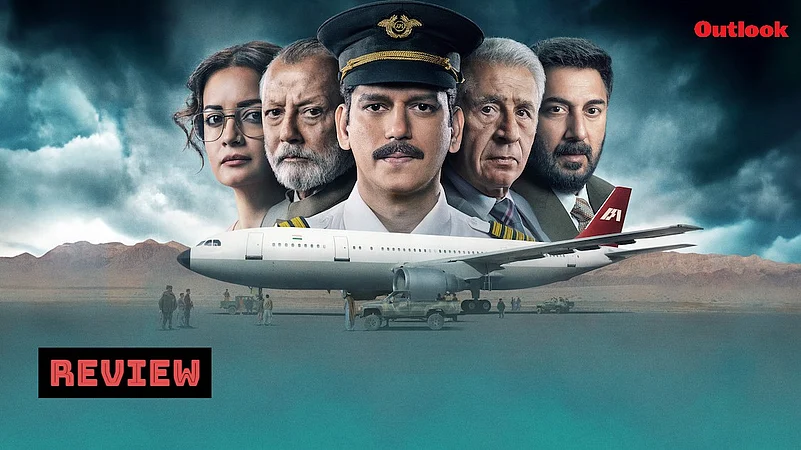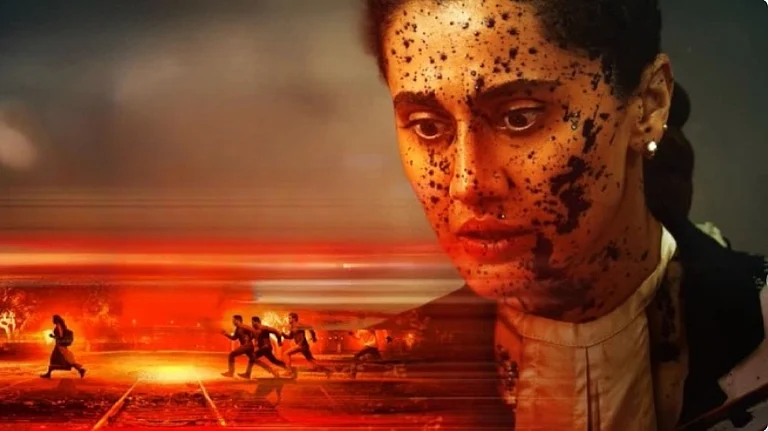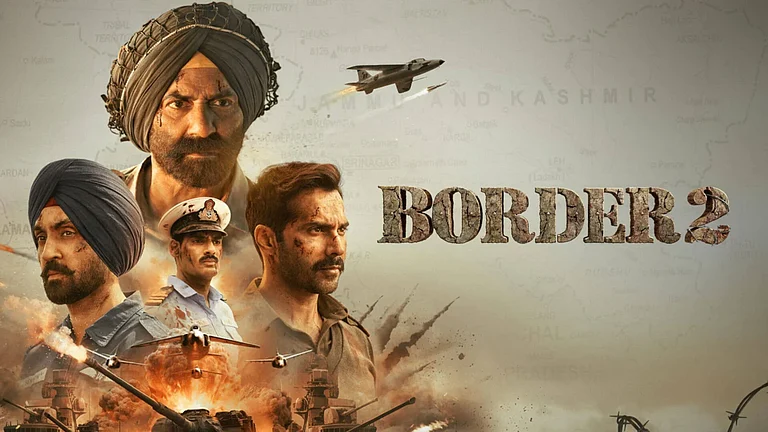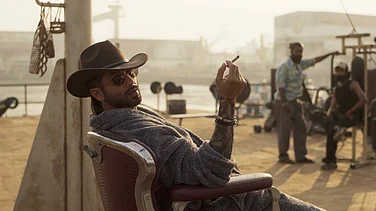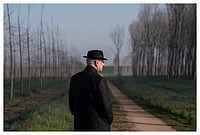For the most of his series, IC 814: The Kandahar Hijack, Anubhav Sinha is so carried away by merely stringing together a panoply of perspectives that none of their layers ring with any scrutiny. Such sloppiness often litters contemporary Indian cinema, where ambition, by itself, isenough. Here, too, the method-the many changing perspectives-seem divorced from the result: whether they produce inquisitive, multi-dimensional filmmaking.
Based on the eponymous real-life events and the book Flight to Fear, the series plunges into the week-long deadlock ensuingonDecember 24, 1999 after terrorists hijackedIndian Airlines flight, carrying180 passengers and crew. Talks between the hijackers and the Indian government reachheadway a few days after the plane lands in Kandahar. But, as the series winds up, the Indian External Affairs secretary wonders if their contingent, steering the negotiations,fought at all. Could it just be that they simply accepted the hijackers’ demands? The series weighs and gauges every plan the forces implemented before facing a difficult decision.
Much has been written about the stellar ensemble. It’s indeed thrilling to watch Naseeruddin Shah and Pankaj Kapoor share screen space after many years, but that excitement eventually fades as it does with most other actors. The giants crowd the frame yet the ensemble never ascends from serviceable to sparkling. We rarely see characters battle their thoughts and fears.Only the flight captain, Sharan’s (Vijay Varma) distraught wife gets that privilege. But her track is superfluous, devoted to how she weathers the blame piled on her husband for him deferring the rescue mission. Granted the chaotic circumstances the series covers don’t license it to such luxuries, the flip side to all the hustle-bustle of strategic group think is no particular character comes off as fleshed with care and attention.
Of course, the stakes are high. There are several vested interests at play, as the series promptly establishes. But the manner in which the screenplay stitches the larger geopolitics, major events preceding the hijack, is dull and frustrating. At times, a dispassionate voiceover hijacks the main plot and weaves in flashbacks, outlining the complicity and interest of the many players. It schools us in broad strokes about the Indo-American relations exacerbated in the wake of the Pokhran nuclear tests. Elsewhere, nugget-shaped histories of the Taliban’s rule in Afghanistan and backstories of a detained militant in a Jammu jail, are perfunctorily dispensed with. Then there are these punctuations of archival footage. The problem is Sinha is content with viewing this mixed-media style-‘style’, though, seems a stretch given how the bland the show is-as adequate unto itself. It didn’t strike him whether these insertions would work. Instead, facile inclusions like the reactions of the passengers’ anxious families stick to familiar beats.
A parallel track revolves around the hijack’s media coverage. Questions of ethics, such as what the reporter can disclose in a piece and national security points that she must be mindful of, are flung but buried the print vs TV war. The show’s dialogues dip ludicrously in these scenes. A TV-leaning editor (Dia Mirza) calls an anchor “She is soft like Doordarshan”. The Editor and the reporter clash often. With a similar haste, they sweep aside all differences.
The show’s thematic enquiry is how history would assess the decisions the people in power are compelled to make. Would it look kindly on them when the intelligence officersknew about the future horrors unleashed by fulfilling the hijackers’ demands? The more the Indian forces delay, the more it imperils the crew and passengers. The writing reduces situations to stock types: a bratty teenager, a young couple, a reluctant father, an old man with frail health. Nothing moves you; the airborne drama feels listless, devoid of danger or threat.
Among the varied intelligence offices, the RAW and IB play the most definitive roles. But byzantine approvals, sectional orders and permissions dilute the urgency of the volatile situations. Vinay Kaul (Shah), National Security Advisor, insists on not hurrying, wanting to first get the approval of all the parties making the coalition government before the forces attack. But the complications of administrative clearances draw out the hijack over seven days. It’s worsened by deliberate cover-ups regarding who knew a crucial tip off, if only they paid more notice to a fax or so. A rush to save one’s skin overrides other duties.
The show also suggests the officers are capable of breaching key protocols. They must think quickly,devising tactical approaches that acknowledge the long-term cost. It’s this balance the series intends to analyse. Conflicts stem from the government’s conundrums. Should it focus on unimpeachable credentials for the sake of history books or, well, save lives?
Naturally, this gives rise to opposing sentiments on the feasible ways of handling the situation. So, while Arvind Swamy’s DRS, the External Affairs secretary, favours a cool, cooperative stance, Manoj Pahwa’s Mukul Mohan, Intelligence Bureau director, is more abrasive and confrontational. Pahwa seems both jovial and hostile but his character, like many others in the show, is stock-thin.DRS has to play his cards carefully, especially when there’s a shot at amicable settlement with other countries. The intelligence team also orchestrates another investigation in Kathmandu, to uncover what’s inside a particular bag on the plane. The discovery is explosive but yet again this clumsy thread sucks out all tension.
IC 814 repeatedly misconstrues the multiple vistas of one situation, shifting as per individual convenience and traction. Perhaps, expecting political nuance in a drama that strains for paciness, is a tall order. You can almost imagine Sinha patting himself on the back, smug about amalgamating the many participants in this narrative. Just the political muckiness of the show merits its own piece.As if to counter the vapid hijackers’ Bad Muslim prototype, the show also bungs in umpteen examples of the Good Muslim. So, for every act of terrorism, you must be able to separate it, the show hammers, from the religion it’s instantly ascribed to.Trying to gain brownie points for not drumming up jingoism, Sinha resorts to simplistic binaries of religion, identity and political positioning.It’s what annoyed me the most.IC 814 gets lost between an affected fair-mindedness and condescending perceptions of Islamic/un-Islamic acts.







